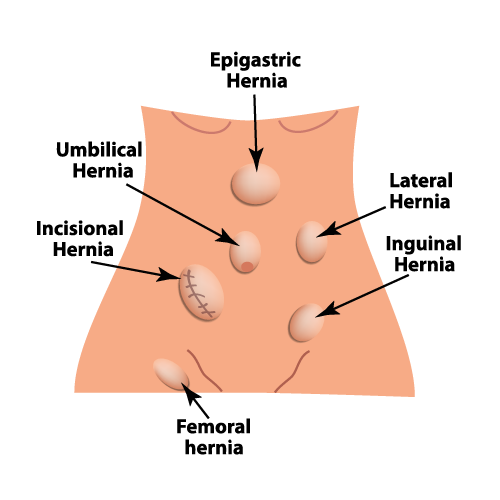Inguinal hernias result from a weakness in the abdominal muscles, creating spaces where intestines and other tissues can slip through and protrude, commonly resulting in a large bulge that may cause pain when lifting heavy objects coughing or bending over.
Unfortunately, an inguinal hernia will not improve on its own and may need surgery, especially if it becomes painful or progress to develop complications.
Inguinal Hernia Repairs fall within the General Surgical Specialty, despite its name, is the surgical specialty that focuses on surgical treatment of abdominal organs and often includes endocrine surgery, breast surgery and hernia surgery (Department of Health, 2010).
Inguinal Hernias are the most common surgical procedure completed in the General Surgery speciality. As such, the waiting list for surgery in public hospitals for Inguinal Hernia Repair Surgery can be up to 348 days.
An Insight into Hernias
Symptoms of an Inguinal Hernia
- A bulge in the area on either side of your pubic bone, which becomes more apparent when you’re upright, especially if you cough or strain
- A burning or aching sensation at the bulge
- Pain or discomfort in your groin, especially when bending over, coughing or lifting
- A heavy or dragging sensation in your groin
- Weakness or pressure in your groin
- Occasionally, males may experience pain and swelling around the testicles when the protruding intestine descends into the scrotum
Keyhole Inguinal Hernia Repair
-
One single surgery fee
-
Reduced waiting times for consultation & surgery
-
Your expected hospital stay is 0 to 1 nights
The total price advertised is for the surgery, anaesthetics, and hospital fees associated with this procedure.
Additional fees will be payable to your specialist for consultation and follow-up appointments.



